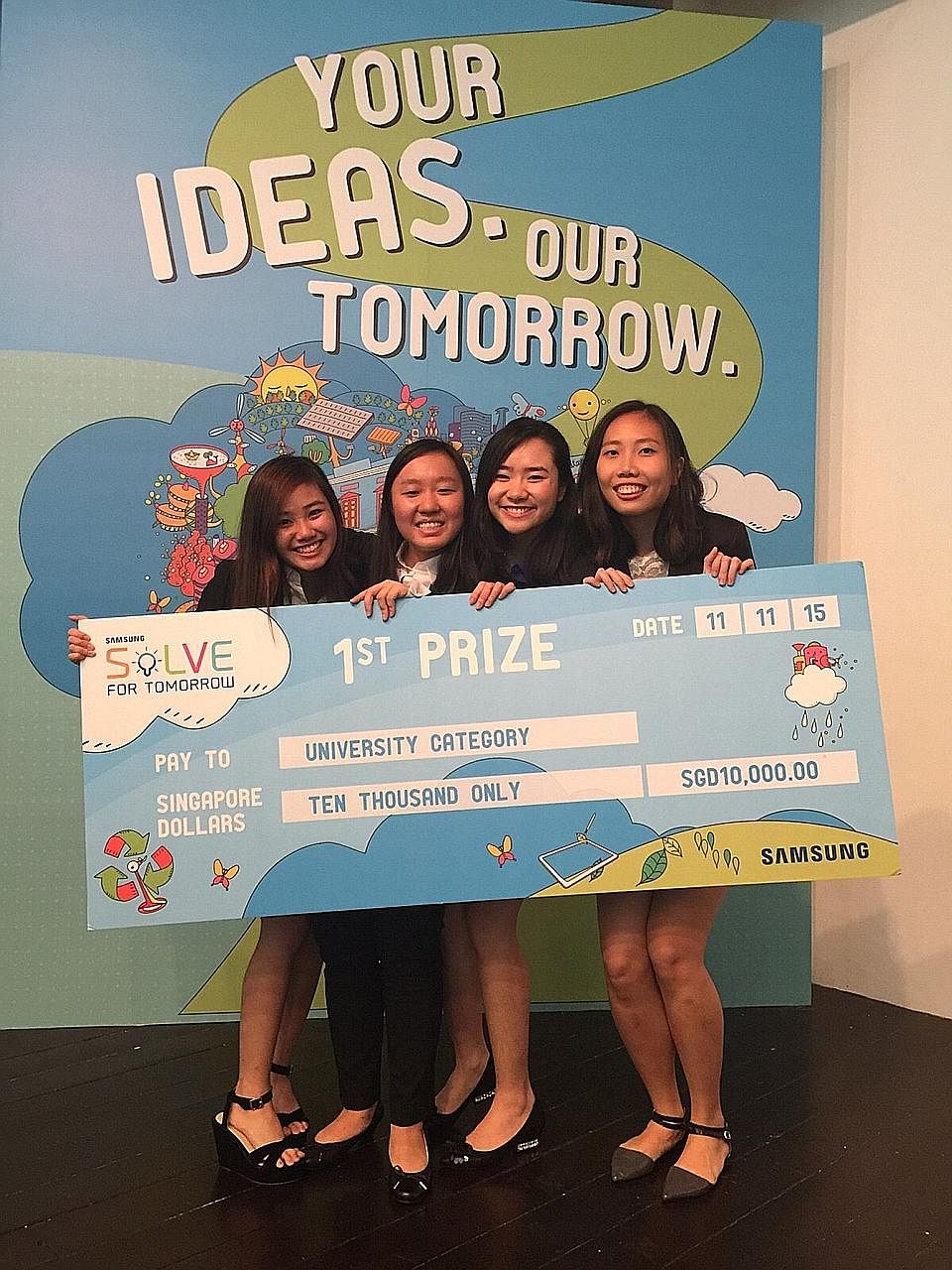The local edition of a competition organised by tech giant Samsung is returning for the third year.
In the Samsung Solve for Tomorrow challenge, students are encouraged to use technology to come up with solutions to social issues in Singapore.
For the first time, there will be a secondary school category.
The previous edition was open to universities, polytechnics and the Institute of Technical Education (ITE). This year, it is open to secondary schools, pre-university institutions, polytechnics and ITE.
Said Mr Lee Jui Siang, president of Samsung Electronics Singapore: "At Samsung, we believe that the younger generation are the change-makers of Singapore's future, where students have the potential to make a difference in the community."
Teams taking part in the secondary school category need only submit a proposal, while shortlisted teams from IHLs will present their ideas at a final pitch session.

-
JOIN THE CHALLENGE
-
Teachers who are interested in attending the workshop can register online: https://www.samsung.com/sg/solvefortomorrow/workshop-form/
For more information about the competition and to submit entries, go to: https://www.samsung.com/sg/solvefortomorrow/
Mr Lee added: "We hope that Solve for Tomorrow can provide them (students) with the opportunity to contribute to society in a different way by leveraging technology, where they can also take away essential skills such as critical thinking for their future use."
The competition is offering more than $180,000 worth of prizes in total, including a study trip to South Korea, internship opportunities with Samsung Electronics Singapore and cash prizes.
When the competition was held locally in 2014 and 2015, the winning teams' ideas included a mobile game to help children with lazy eye improve their conditions, an app which translated dialects into English or Mandarin, an app that tracked a driver's eye movements and sent out warning signals when it sensed that a driver was about to fall asleep, and an RFID system that allowed those with visual disabilities to travel independently.
Ms Chua Yi Bei, 25, whose team won the university category in the 2015 competition with the app to prevent drivers from falling asleep at the wheel, even became a full-time employee with Samsung Electronics Singapore after her internship there in 2016. She said of her competition experience: "I learnt how to develop an idea from scratch and see it through to execution."
This year, students have until Oct 12 to identify a problem they want to solve and submit their ideas on how they want to address the issue.
The competition is supported by the Infocomm Media Development Authority.
As part of Solve for Tomorrow, Samsung will also hold a National Design Thinking Workshop for teachers on Sept 3 and 4, in collaboration with Singapore Press Holdings and Singapore Polytechnic.
The two-day workshop will equip teachers with design thinking techniques, which can be applied in classrooms to help students develop their competition submissions.
Correction note: This article has been edited for clarity.

